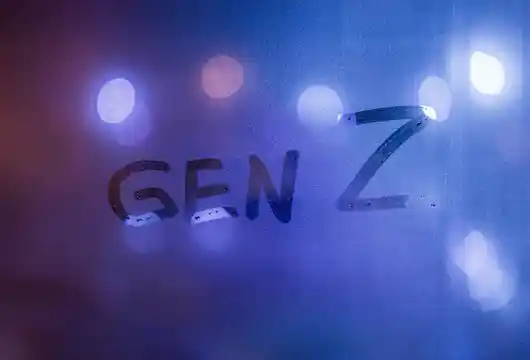The climate crisis is one of the most pressing challenges that the world is facing today, and it is the responsibility of all generations to take action to address this issue. However, it is GenZ, the generation born between 1997 and 2012, who will bear the brunt of the long-term impacts of climate change. In this essay, I will discuss five reasons why climate action is necessary for GenZ.
Firstly, climate action is necessary to protect our future. The effects of climate change are already being felt worldwide, from rising temperatures to more frequent and intense natural disasters. These impacts will continue to worsen o
ver time, affecting the quality of life of millions of people. GenZ will be the ones who will face these consequences, and it is essential to act now to protect our future. Reducing carbon emissions and transitioning to renewable energy sources will help prevent more severe climate change impacts, such as extreme weather events, sea level rise, and food and water scarcity.
Secondly, climate action is essential for the health and well-being of GenZ. Climate change is not only affecting the environment but also human health. Poor air quality, extreme heat, and the spread of disease-carrying insects are some of the negative impacts that will affect the well-being of GenZ if the issue is not addressed. For instance, exposure to air pollution can cause respiratory problems, and prolonged exposure to heat can lead to heatstroke and other heat-related illnesses. Taking climate action will help reduce these health risks and improve the overall quality of life.
Thirdly, climate action is crucial for job creation. GenZ is entering the workforce, and the growth of new industries focused on climate solutions presents career growth and job creation opportunities. The clean energy industry is rapidly growing, and GenZ has the potential to lead this transition by developing innovative solutions and technologies that can help reduce carbon emissions. The transition to renewable energy sources, such as solar and wind power, will create new job opportunities in various fields. Keeping this in mind and with a vision to nurture talent for the green jobs of the future, Climatora has introduced skill-based climate studies modules under its Academy section.
Fourthly, climate action is necessary for social justice. Climate change disproportionately affects vulnerable populations such as low-income communities, people of color, and indigenous people. For instance, people who live in coastal areas are more likely to be affected by rising sea levels, while those who live in areas prone to droughts are more likely to experience food and water scarcity. Climate action is necessary to ensure that all people, regardless of background, have access to clean air, water, and a safe environment. GenZ has a unique opportunity to lead the charge in creating a more just and equitable society by advocating for climate solutions that prioritize the needs of marginalized communities.
Lastly, climate action is an ethical responsibility. As global citizens, it is our responsibility to take action to protect the planet and preserve it for future generations. The climate crisis is not just an environmental issue but a moral one. GenZ has a unique opportunity to lead the charge in climate action, inspiring others to do the same. GenZ is the generation that will inherit the planet, and they have the power to create positive change by advocating for a sustainable and equitable future.
Climate action is necessary for GenZ to protect its future and address the climate crisis’s health, social, and economic impacts. GenZ has the potential to lead the charge in creating a more sustainable and just future, and they need to be actively involved in the fight against climate change. By advocating for climate solutions and acting in their communities, GenZ can significantly reduce carbon emissions, protect vulnerable populations, and create a brighter future for all.

